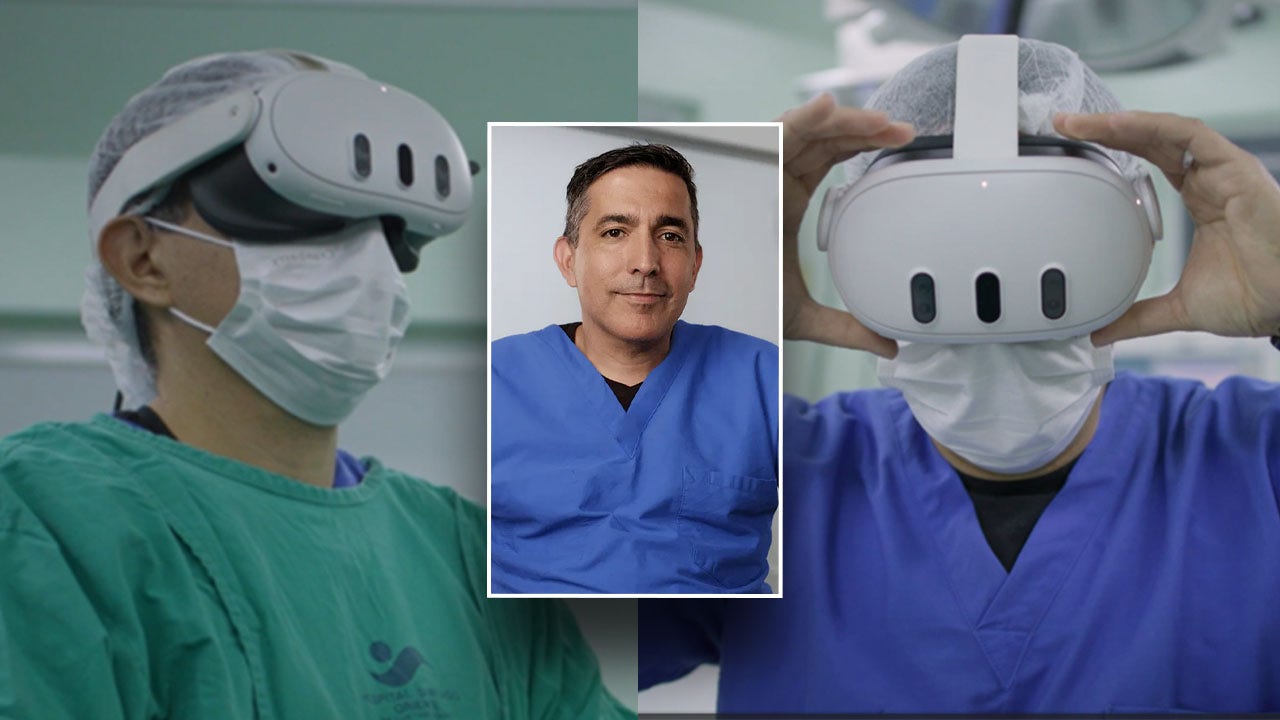The future of surgery is within reach.
The first-ever augmented reality (AR) abdominal surgery was performed on March 11 in Santiago, Chile, by Dr. Alberto Rodriguez.
A surgeon as well as the CEO of Levita Magnetics, a medical equipment manufacturer in Silicon Valley, Rodriguez helped develop a system that uses AR technology to enable less invasive surgery with a wider view for the surgical team.
NEW JERSEY WOMAN SINGS TAYLOR SWIFT HITS WHILE AWAKE DURING BRAIN SURGERY: ‘ERAS TOUR’ IN THE O.R.
Through the lens of Meta’s Quest 3 XR headset and Levita’s MARS system, Rodriguez was able to successfully perform a cholecystectomy, also known as gallbladder removal surgery.
By developing the technology, Levita Magnetics aimed to address the limitations that surgeons face, Rodriguez told Fox News Digital in an interview.
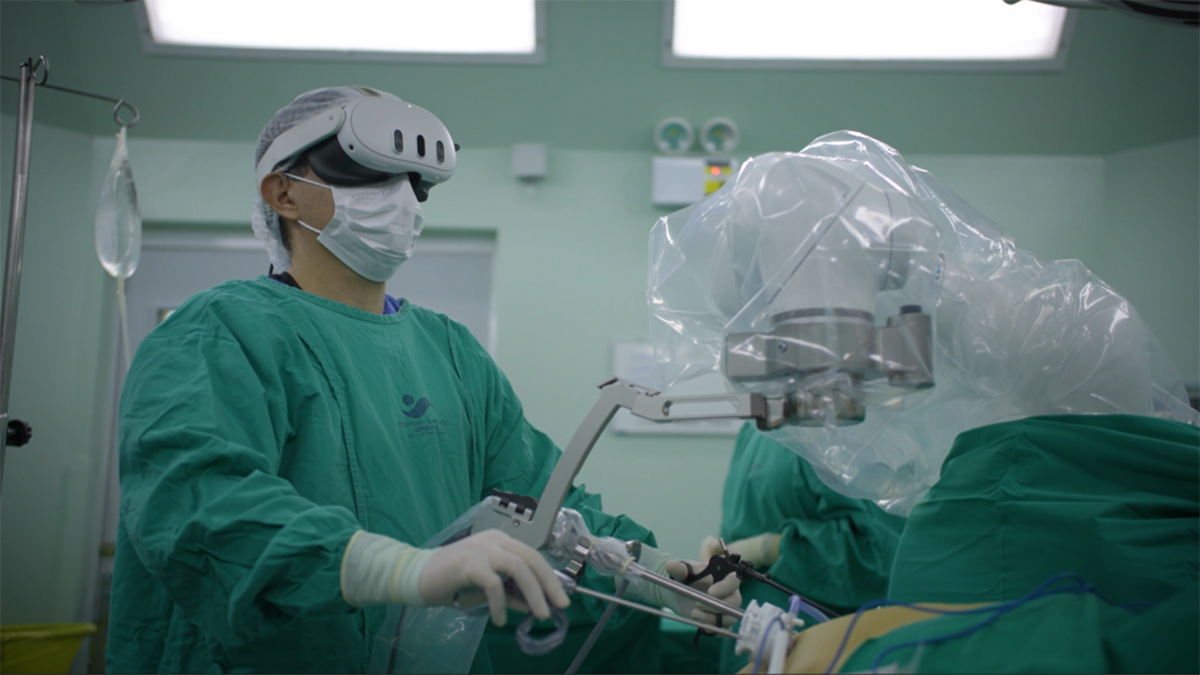
Dr. Alberto Rodriguez, pictured here, said the MARS system gives surgeons “two extra arms” for instrument control, as well as camera stability. (Levita Magnetics)
“That’s why we decided to start the company, to create better tools for surgeons,” he said.
The FDA-approved MARS system, which combines “machines and magnets,” is currently available in the U.S. and in Chile, Rodriguez said.
MASSACHUSETTS MAN RECEIVES SUCCESSFUL PIG KIDNEY TRANSPLANT
“This is a platform that enables the surgeon to do the surgery in a better way,” he said.
“I did the surgery, and I can tell you that it’s a better way.”
“With the magnets, you reduce the number of incisions for the patient. That means less pain, fewer scars [and] a better recovery.”
He added, “The machine enables you to control the tools, so you can see better and have control.”
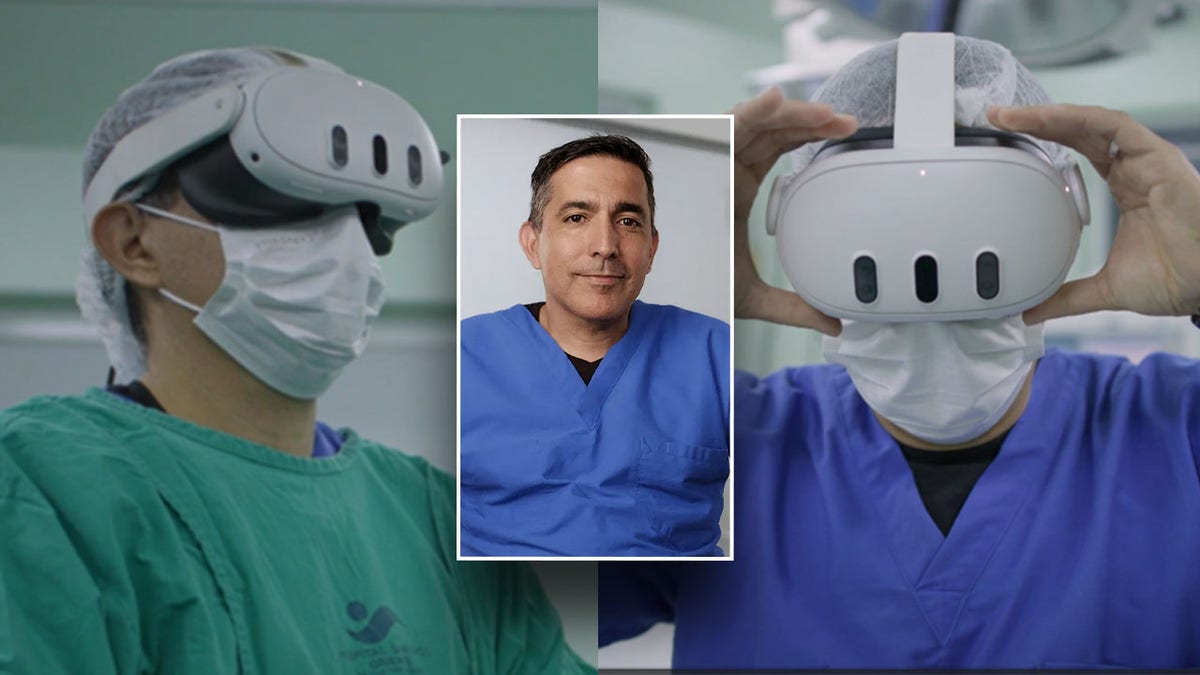
“It’s super rewarding to see it and feel it,” Rodriguez said about his first AR surgery — he’s pictured here. He also told Fox News Digital, “You have more immersion in the surgery, so you are more focused on what you’re doing.” (Levita Magnetics)
Levita developed the AR component as an accessory to the MARS system to improve visualization.
“You have more immersion in the surgery, so you are more focused on what you’re doing,” Rodriguez said — comparing it to “moving with the surgery.”
OREGON TODDLER RECEIVES LIFE-CHANGING SURGERY RARE EYE SYNDROME: ‘SASSIER, MORE ENERGETIC’
Any new AR headset can be linked to the MARS software, according to a press release.
Rodriguez plans to conduct a clinical trial on the benefits of AR surgery, focusing on ergonomics and precision.
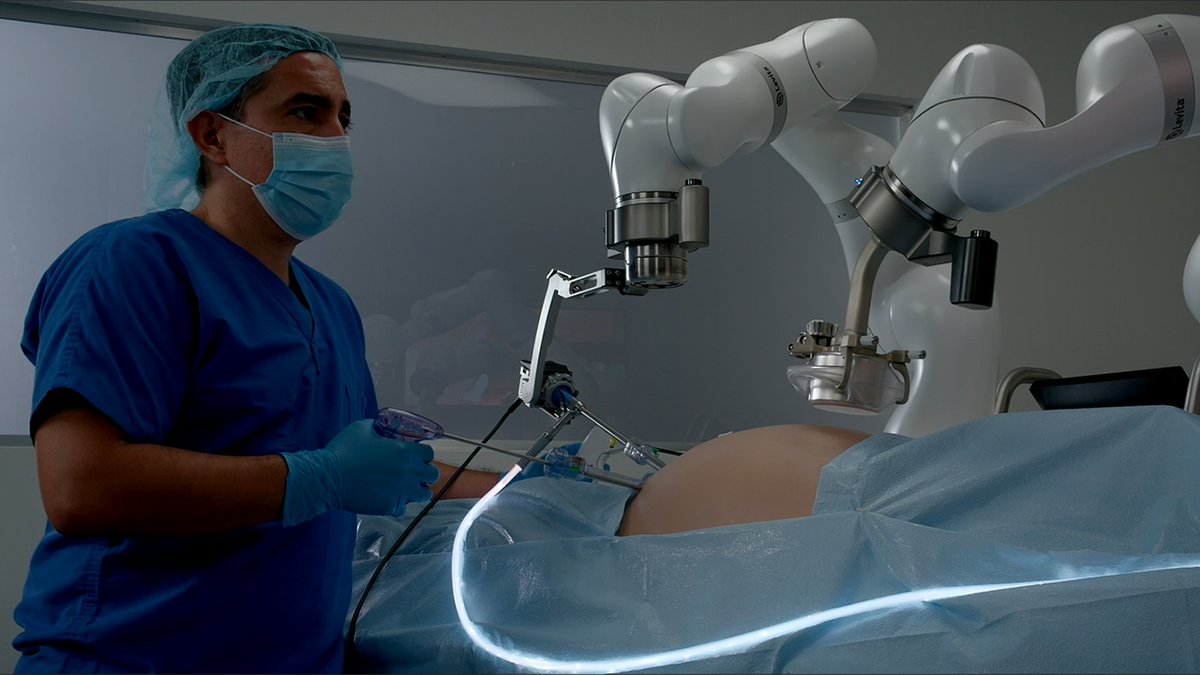
The March 11 surgery was also the first clinical case that integrated a magnetic surgery machine with AR technology, according to Levita Magnetics of Silicon Valley. (Levita Magnetics)
“I did the surgery, and I can tell you that it’s a better way,” he said.
“So, we want to have more data in order to back up those first impressions.”
After the surgery, the patient fully recovered within two weeks, the surgeon reported.
‘Opens a new world’
As artificial intelligence continues to expand in the health care space, Rodriguez projected that having an enhanced “digital view” through AR will help provide images and analysis of patients.
WHAT IS ARTIFICIAL INTELLIGENCE (AI)?
“It opens a new world for how the surgeon can access [data] in real time during the surgery,” he told Fox News Digital.
“Other surgeons in any part of the world can see what you’re doing, see the patient on the operating table and give you advice.”
WOMAN’S LIFE IS SAVED WHEN FULL-BODY SCAN DETECTS DEADLY CONDITION WITH NO SYMPTOMS
He added, “It will be a revolution in how surgeries are performed, and I’m very happy [about] how technology is empowering surgeons to do more.”
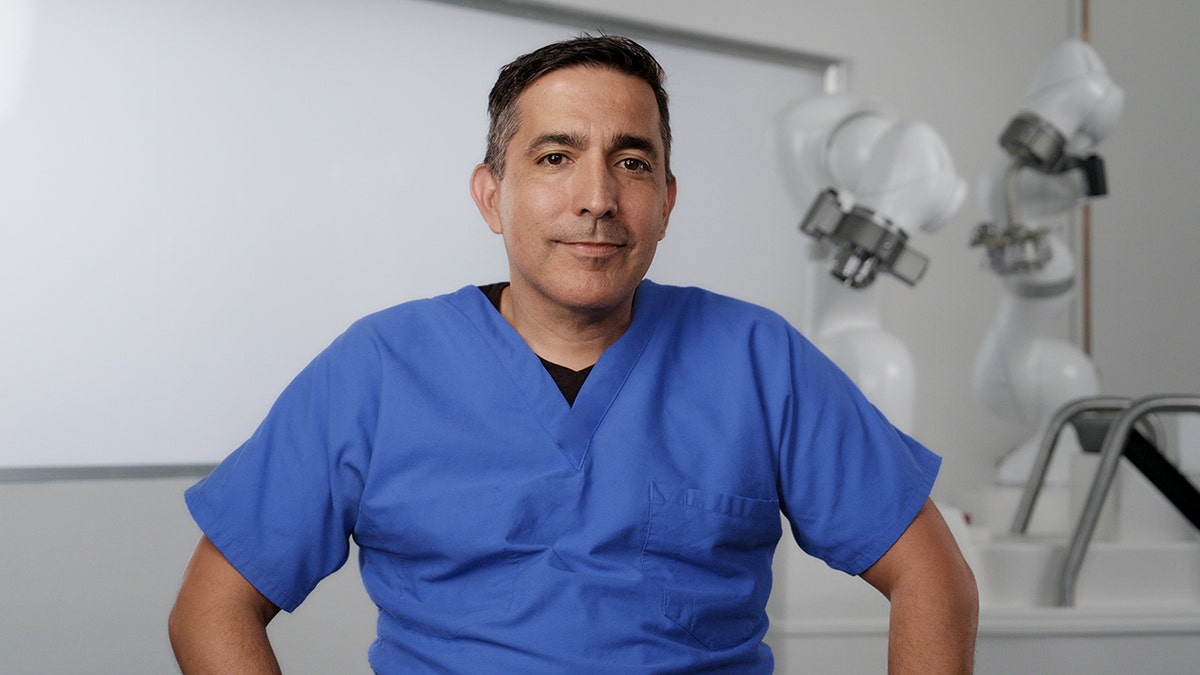
Dr. Rodriguez, pictured here, predicts AR surgery will be a “revolution.” (Levita Magnetics)
Dr. Harvey Castro, an ER physician and an expert on AI in health care, told Fox News Digital that Rodriguez’s method “marks a pivotal evolution in medical technology” — but also urged caution.
He was not involved in the new surgery or process.
“This innovative approach enhances surgical precision and patient care, but introduces significant changes and challenges requiring careful consideration,” he said.
CHILD IS SAVED BY EMERGENCY SURGERY AFTER HE SWALLOWED A CLOTHESPIN SPRING
Castro listed multiple benefits of using AR in surgical procedures, including immersive visualization, minimally invasive techniques, improved patient outcomes and collaboration within the medical field.
Dependency on this kind of technology, however, could cause surgeons to become reliant on AR, “potentially diminishing their confidence and competence in conducting surgeries without technological assistance,” Castro said.
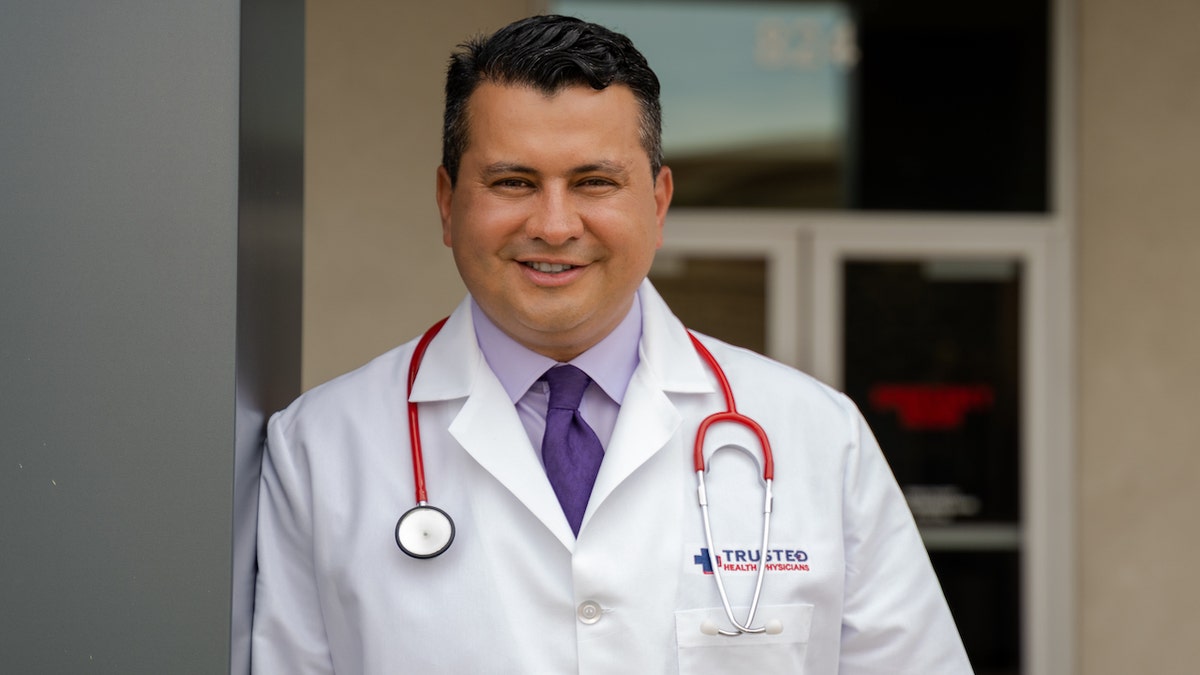
Harvey Castro, M.D., is the author of the book “Apple Vision Healthcare Pioneers: A Community for Professionals & Patients” (Feb. 2024). (Dr. Harvey Castro)
“Ensuring the reliability of AR systems is crucial,” he went on. “Protocols must be established to revert to traditional methods if AR technologies fail.”
Castro also mentioned that AR systems can be “susceptible to glitches and failures, disrupting surgeries and posing patient safety risks.”
CLICK HERE TO SIGN UP FOR OUR HEALTH NEWSLETTER
“Current AR headsets may have issues with field of view, resolution and comfort, particularly during long surgeries,” he said.
CLICK HERE TO GET THE FOX NEWS APP
Castro noted that “proper management, careful planning and ongoing evaluation will be essential to ensure that the benefits of AR technology outweigh the costs and challenges, ultimately enhancing patient outcomes and advancing surgical practices.”
For more Health articles, visit www.foxnews.com/health.
